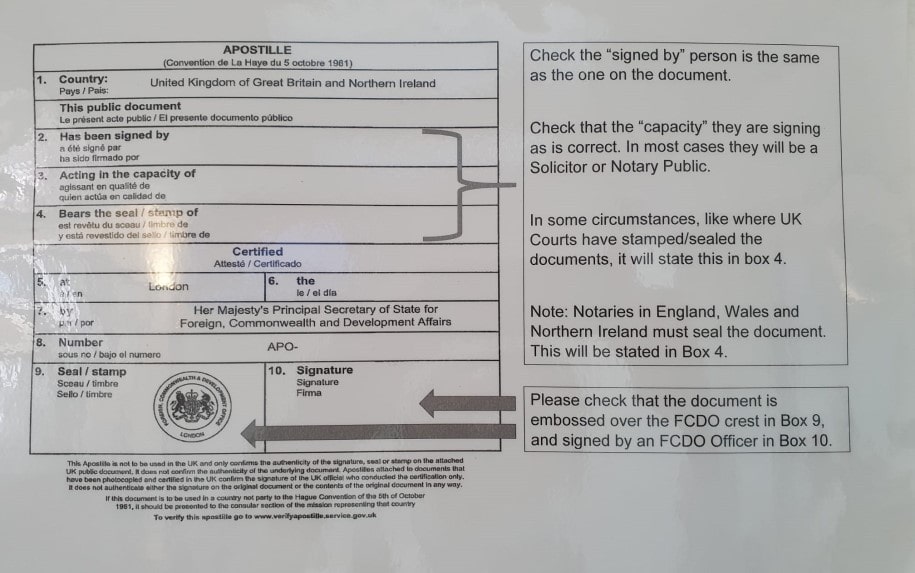
Email: notary@inotarypublic.co.uk

Fast FCDO Apostille service from Waterloo, London — full handling from notarisation (if required) to Apostille and consular legalisation.
An Apostille is an official certificate that confirms a UK document is genuine. It is issued by the Foreign, Commonwealth & Development Office (FCDO), sometimes called the Foreign Office.
The Apostille bears the FCDO stamp, embossment and a recognised officer’s signature. It can only be attached to documents that already carry an official signature or seal (e.g., Registrar or Court Official).
If your document does not include an official signature, it must be notarised first. A Notary Public verifies identity/content, then signs and seals the document so the Apostille can be added.
Once notarised, the document is submitted to the FCDO for Apostille. Our team manages the entire process for you — quickly, correctly and with minimal stress.

An Apostille certifies the authenticity of a UK document for use overseas under the Hague Convention. It does not validate the document’s content; it validates the signature/seal on it.
If the document does not already bear a recognised official signature or seal, a Notary Public must notarise it first. We’ll advise whether notarisation is required for your destination country.

Our reliable 2-day workflow ensures quick turnaround without unnecessary delays.
Common items include powers of attorney, affidavits/declarations, passports, driving licences, bank statements, educational certificates and transcripts, and UK company documents.
An Apostille is part of the legalisation process. Hague Convention countries usually accept Apostille alone. Non-Hague countries also require consular legalisation at their embassy/consulate.
We handle Apostille and any required consular legalisation end-to-end to ensure acceptance overseas.
For fast and reliable Apostille services in London, call 020 7019 9007 or email notary@inotarypublic.co.uk.
Our experienced clerks understand FCDO and consular procedures and will guide you on the most efficient route for your destination country.